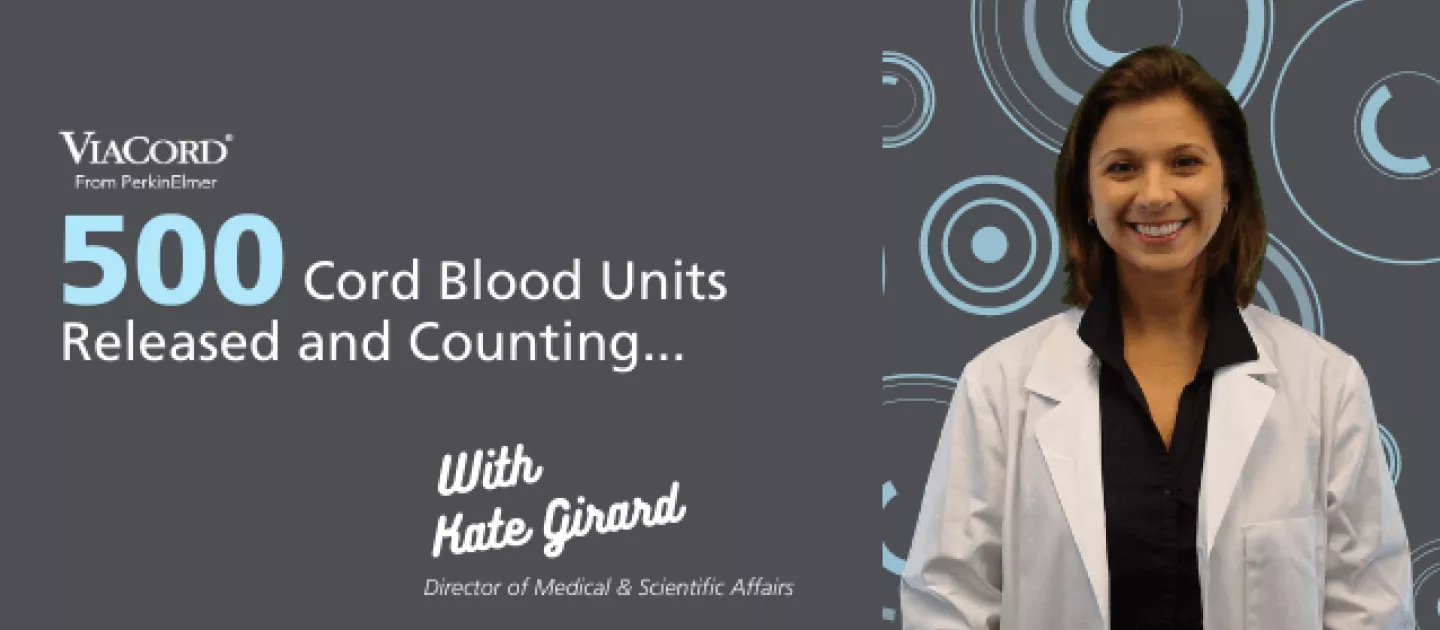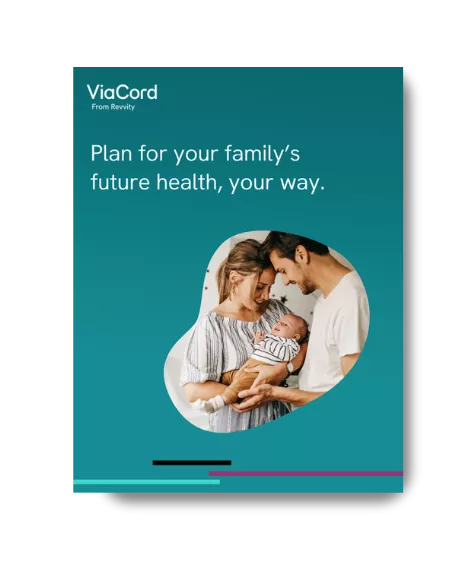ViaCord has just reached two significant milestones . . . over 500 cord blood units have been released for use in clinical treatments and 100 units have been released for autism spectrum disorder (ASD). These are incredible milestones for so many families and ViaCord. We recently spoke with Kate, our Director of Medical and Scientific Affairs about these milestones and how cord blood stem cells are being used.
When you started with ViaCord, did you envision ViaCord would be able to help so many families?
When I took this position with ViaCord, we had released a total of 9 units for transplantation – so I'd have to say I didn't envision recognizing the day we released our 500th unit. However, seeing the increased utilization in both transplant and clinical trials for neurologic indications has been amazing! We now have had several years where we averaged a unit going out every week for clinical application. We've come a long way . . . and I'm excited about the prospects of helping the next 500 families.
Cord blood is used for both transplantation and regenerative medicine; could you explain what this means?
Cord blood stem cells have been used in transplant medicine for over 30 years. They can help treat nearly 80 serious conditions today – like blood disorders, certain cancers, immunodeficiencies, metabolic disorders, and bone marrow failure syndromes. In transplants, they help rebuild a healthy blood and immune system that has been damaged by disease.
Regenerative medicine uses cord blood in a different way than transplant medicine does. Instead of rebuilding a new blood and immune system, like in transplants, it's being used in clinical trials to potentially regenerate or facilitate a return to normal function by stimulating the body's self-healing's abilities. Some examples of regenerative medicine applications for cord blood are cerebral palsy and autism spectrum disorder (ASD). To provide a sense of the potential impact of cord blood, we recently released our 100th cord blood unit for the treatment of ASD.
So, Autism is one of the conditions you spoke about for regenerative medicine. Why would success in treating kids with Autism with cord blood be so important?
Autism is a condition that, per the CDC, impacts 1 in 54 children. Despite advances in early diagnosis and behavioral therapies, more effective treatments for children with ASD are needed. If cord blood can be used to treat ASD and/or bring to light a better understanding of how to treat ASD, there is a substantial unmet need.
What progress have we seen thus far in using cord blood to treat Autism?
The use of autologous (one's own) or sibling cord blood in children with autism has been proven safe. Hundreds of children with autism have had cord blood infused through clinical trials. There is currently an FDA expanded access protocol in place to enable children who have their own, or a sibling's cord blood banked to receive infusions at three clinical sites across the US – at Duke University in North Carolina, MD Anderson in Texas, and Rutgers University in New Jersey. Clinical outcomes have been varied, but the fact that there has been improvement in many children is promising. I would never expect one single treatment to work on everyone who has a spectrum disorder. Nonetheless, I am very optimistic it has the potential to help thousands of families.
What's your outlook for cord blood over the coming years?
I believe the future is promising for cord blood stem cells. There is exciting work exploring the use of them in even more conditions like stroke and the treatment and repair of congenital heart defects. Umbilical cord blood can be a source of genetic testing material or as the raw material from which can be derived other therapeutics in the future, like gene therapy. I have never been more excited and optimistic about its clinical potential and the opportunities it may bring to so many families.
Follow us on Facebook, Twitter, and Instagram to join the conversation and stay up-to-date on cord blood & tissue, genetics, pregnancy, and everything in between!
Disclaimer: Banking cord blood does not guarantee that treatment will work, and only a doctor can determine when it can be used. PerkinElmer and ViaCord do not endorse or make recommendations with respect to research, medication, or treatments. All information presented is for informational purposes only and is not intended as medical advice.
Resources:
CDC. Data & Statistics on Autism Spectrum Disorder. https://www.cdc.gov/ncbddd/autism/data.html











